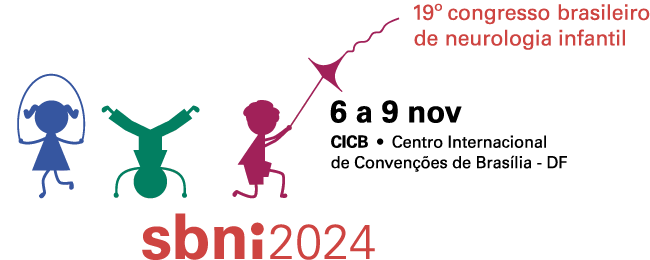Dados do Trabalho
Título
NIEMANN-PICK TYPE B ENZYME ALLERGIC REACTION
Apresentação do caso único
Male patient, 1 year and 11 months, was born full term cesarean section, with a birth weight 2800g (z score -1,88), size 48cm (z score -1,87). The apgar scores were 7 in the first minute and 8 in the fifth minute. Neonatal screening tests were normal. Parents are healthy and non- consanguineous. Mother referred to mid jaundice (Kramer zone 1) from the first days of life to three months, which disappeared without treatment. At seven months was identified hepatosplenomegaly. Physical examination revealed hepatomegaly 4 cm below the costal margin, and splenomegaly 5 cm below costal margin. Laboratory tests identified abnormal liver function (AST 191, ALT 71, ALP 375). The abdominal ultrasound revealed an increased liver and spleen. Liver biopsy showed foamy cytoplasm cells. The patient began an investigation of metabolic storage disease. Laboratory identified sphingomyelin of 0,4. Genetic panel revealed two pathogenic heterozygous variant in SMPD1 gene, (p.Arg443*) and (p.Ser192Alafs*65). Based on phenotypic with no nervous system involvement, Type B syndrome was confirmed. At the age of one year and two months the patient was admitted for an abscess drainage, and had a cardiopulmonary resuscitation, after anesthesia induction. Mother referred since, hypoxic event, lack of cervical control and seizures. Brain CT revealed proeminence of the Sylvian fissure. Electroencephalogram identified epileptiform occasional discharges in bilateral temporal region, with right predominant, isolated and grouped. Patient was prescribed phenobarbital and levetiracetam, showing crisis control. At one year and five months was initiated olipudase alfa enzyme. Four months later, the patient had an allergic reaction after an increase of enzyme dose to 3mg/kg. He presented in the emergency room hours later with pale skin, vomiting and hypersalivation. It was prescribed saline solution 0,9% 20ml/kg and ondansetron 0,15mg/kg. Currently the patient maintains a lower enzyme dose of 2mg/kg and didn’t experience any other reactions.
Discussão
Niemann-Pick disease is an autosomal recessive lysosomal storage disease that presents classically with hepatosplenomegaly and sphingomyelinase deficiency. Treatment is managed with olipudase alfa enzyme.
Comentários finais
Infusion reactions are rare and usually present with nausea, vomiting, swelling. In our report, lowering treatment doses was sufficient to prevent new enzyme reactions in our patient.
Referências
1. VALADARES, F. de A. et al. Doença de Niemann-Pick: uma abordagem diagnóstica, evolução clínica e revisão. Brazilian Journal of Health Review, [S. l.], v. 6, n. 5, p. 22076–22084, 2023. DOI: 10.34119/bjhrv6n5-242. Disponível em: https://ojs.brazilianjournals.com.br/ojs/index.php/BJHR/article/view/63202. Acesso em: 01 aug. 2024.
2. Freitas H. et al. Doença de Niemann-Pick tipo B: avaliação do comprometimento pulmonar por TCAR. J Bras Pneumol. 2017;43(6):451-455. http://dx.doi.org/10.1590/S1806-37562017000000062. Acesso em: 04 aug. 2024.
Palavras Chave
Liver; enzyme; NiemanPickB
Área
Erros inatos do metabolismo
Autores
LISANDRA CONEGLIAN FARIAS RIGOLDI, JOSE ANTONIO COBA, MARIANA JORDÃO FRANÇA, MICHELLE SILVA ZENY, MARA LUCIA S F SANTOS, DANIEL ALMEIDA VALLE
